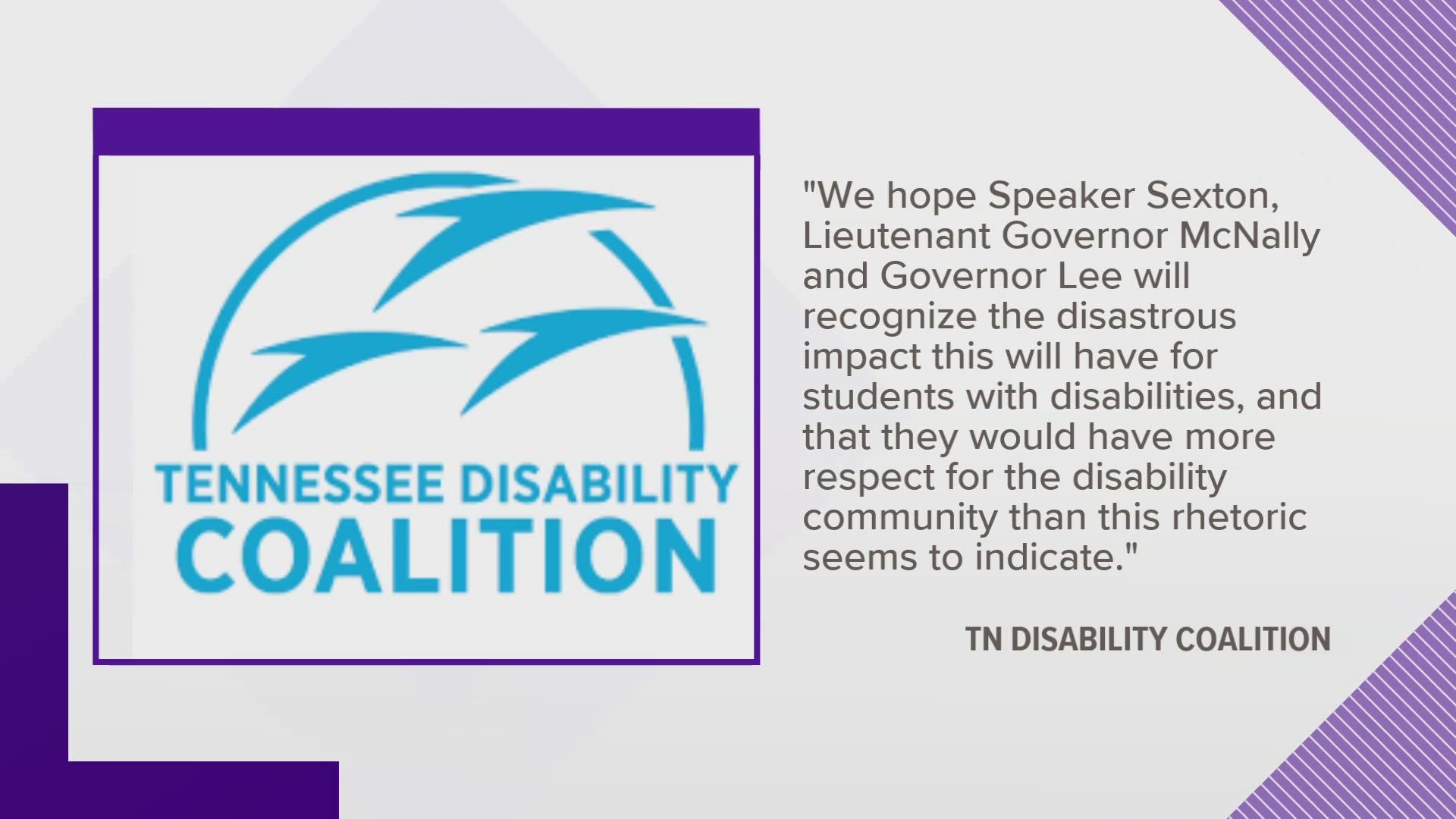NASHVILLE, Tenn. — One of Tennessee's most influential Republican lawmakers says the state should stop accepting the nearly $1.8 billion of federal K-12 education dollars that help provide support for low-income students, English learners and students with disabilities.
House Speaker Cameron Sexton told The Associated Press that he has introduced a bill to explore the idea during this year’s legislative session and has begun discussing the idea with Gov. Bill Lee and other key GOP lawmakers.
“Basically, we'll be able to educate the kids how Tennessee sees fit,” Sexton said, pointing that rejecting the money would mean that Tennessee would no longer have “federal government interference."
To date, no state has successfully rejected federal education funds even as state and local officials have long grumbled about some of the requirements and testing that at times come attached to the money. Many Republican politicians and candidates at the federal level have also made a habit of calling for the outright elimination of the U.S. Department of Education.
According to Sexton, Tennessee is currently in the financial position to use state tax dollars to replace federal education funds. He pointed to the $3.2 billion in new spending outlined in Gov. Lee’s recent budget proposal for the upcoming fiscal year as proof that the state could easily cover the federal government’s portion.
Federal dollars make up a small slice of Tennessee's K-12 education funding, which had an almost $8.3 billion budget as of fiscal year 2023. Yet the federal money is seen as a key tool to supporting schools in low-income areas and special education.
Sexton says he has been mulling the proposal for a while, but this week, he publicly touted the idea in front of a packed room full of lawmakers, lobbyists and other leaders at the Tennessee Farm Bureau luncheon on Tuesday.
“We as a state can lead the nation once again in telling the federal government that they can keep their money and we'll just do things the Tennessee way,” Sexton said at the event. “And that should start, first and foremost, with the Department of Education.”
However, he later acknowledged to the AP that such an undertaking had never been accomplished before by a state.
A spokesperson for Lee did not immediately return a request for comment.
Senate Speaker Randy McNally said he was open to the proposal, saying that “federal mandates in the area of education can be overly burdensome.”
“McNally thinks a discussion about forgoing this money, a relatively small part of overall education funding, in order to maintain more control over how we educate our Tennessee students is a constructive conversation to have,” said spokesperson Adam Kleinheider.

